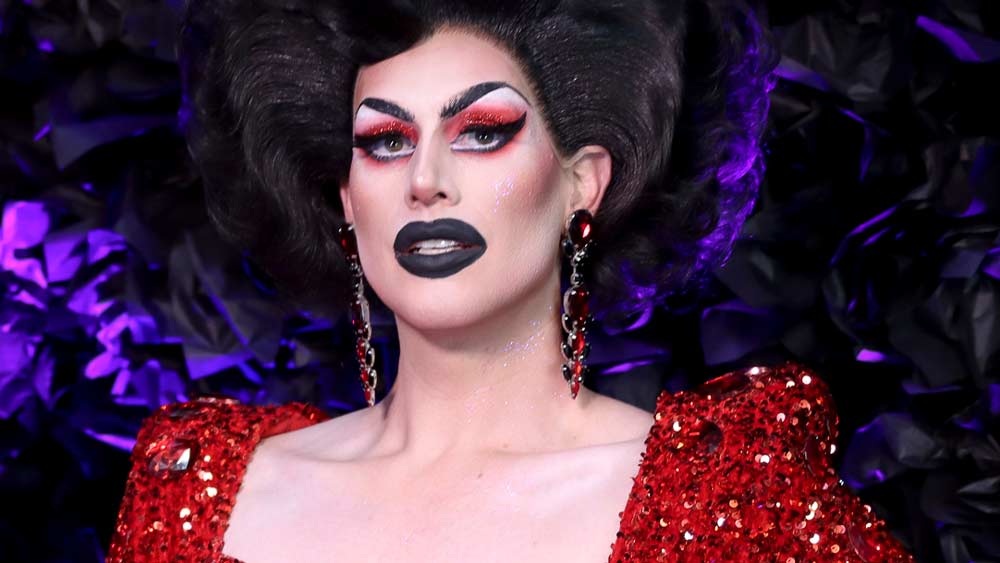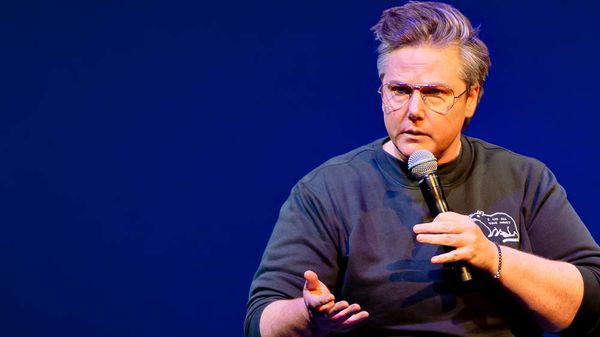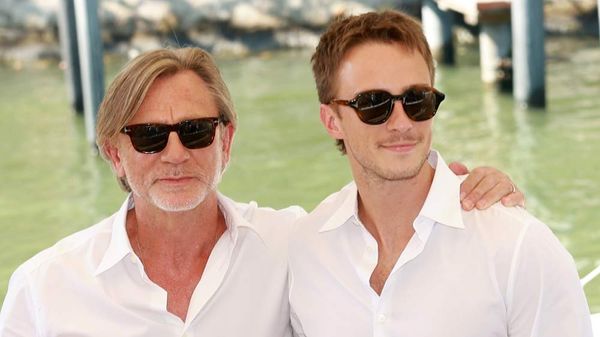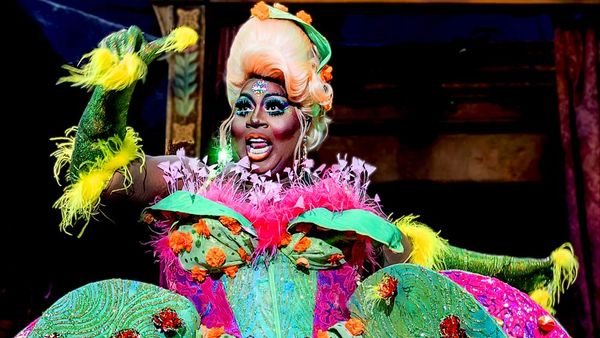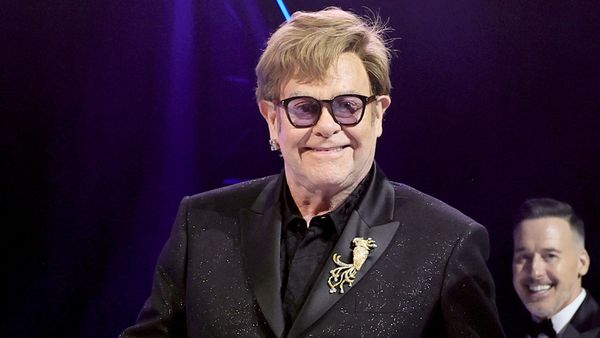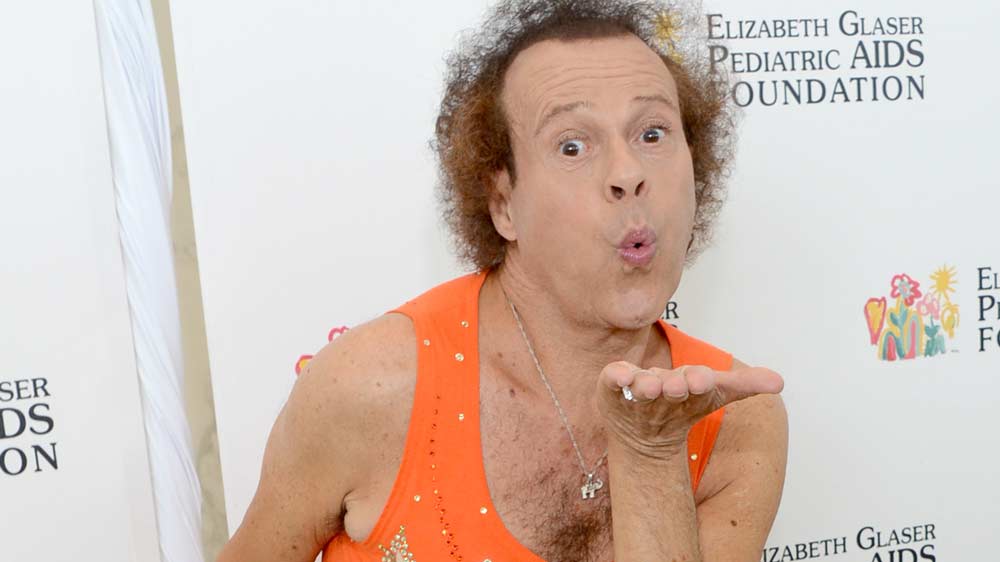
Jul 17
Richard Simmons' Final Interview: 'I Made People Laugh,' Was 'A Little Bit Different'
Kilian Melloy READ TIME: 4 MIN.
Fitness guru and "court jester" Richard Simmons brought joy, and sweat, to millions of lives. Simmons opened up about a life lived helping others in a last interview with People Magazine, conducted only two days before his death last Saturday, July 13, at age 76, evidently of natural causes.
People recalled how Simmons made fitness a national craze and became an exercise celebrity with nine books to his name, a recurring role on "General Hospital," a TV talk show, workout videos, and two diet plans.
Simmons' flamboyant style and joyous energy sparked speculation around his sexual orientation. Simmons never addressed that issue publicly, but he did explain to People how his sense of fun was part of his brand.
Saying that "people thought I was silly and a little bit different," Simmons suggested that his appeal lay at least in part with the image of him being "nothing special... except maybe my sense of humor.
"When I was a waiter," Simmons went on to explain, "I was a real cut-up...I made people laugh. There was no menu, so I did the menu verbally – and if there was a guy at the table, I would sit on the guy's lap."
Recalling how he had been bullied as a youth over his weight, Simmons said humor was a defense against the cruelty he faced. Giving an example of the bullying he suffered, Simmons recounted that he "was in a schoolyard, I guess I was in sixth grade, and this man... this boy who was very tall for his age took a baseball bat and hit me on the back of my head. I fell to the floor and the nuns came out and asked me if I was okay and they sent me home."
But the story didn't end there.
"Maybe 25 years later," Simmons added, "I was in New Orleans shopping, and this man came up to me with a long beard and overalls on, with his wife, and said, 'I don't think you remember me, but I'm the one that hit you in the head with a baseball bat.' And he said, 'Can you ever forgive me?' And his wife started to cry and, you know, he came up to me and he hugged me and – you know, that meant a lot to me."
His prescription for dealing with the world when prejudice and bullying rear their heads? "I always bounced back, because I always thought that I was a good person," Simmons said. "And the person who was bullying me had their very own problems. And that's how I've always lived my life.
"You know, I have a saying, kindness lives inside of all of us, you just have to let it out."
That philosophy was part and parcel of a deep-seated impulse to lend an ear or a helping hand that lived beneath Simmons' "court jester" persona. Reaching out to people who needed to talk became a primary occupation in his later years – and was, perhaps, in some ways a continuation of the deeper undercurrents that had been present in his earlier career.
"[W]hen I retired, I thought someone else was going to take my place," Simmons told People. "That somebody would open up studios for people who needed to lose weight or didn't feel good about themselves, but I haven't seen that.
"I mean," Simmons added, "there's always been places for fit people."
Simmons attributed his passion for helping others to his upbringing and, without getting into specifics, spoke to the plight of young people who are not accepted.
"It's shocking," Simmons said of young people who feel rejected. "And they feel they're not loved. Then they want to take their own life.
"And trust me, I have made those phone calls," Simmons, who described reaching out to fans through email and, when their stories were "intense," by phone. "And [I] said, 'No, no, no, no'," Simmons said of his words to those he took the time to comfort. " 'God has the day that you came in and the day you're going. And you just have to accept that and move on'."
Rumors circulated earlier this year that a Simmons biopic starring Pauly Shore was in the works, and a trailer for the supposed project made the rounds online. Simmons himself shot down the idea that he had anything to do with such a project, though, stating in a Facebook post last January, "I have never given my permission for this movie."
Simmons, who had long since retreated from public life, went on to add: "I no longer have a manager, and I no longer have a publicist. I just try to live a quiet life and be peaceful."
That didn't mean he wasn't busy telling his own story his own way. He was working with songwriter Patrick Leonard – "he wrote music for Madonna, Elton John," Simmons told People; "He's like one of the biggest" – on a musical for which Simmons penned the lyrics to just over a dozen songs.
"The whole show is about my life," Simmons revealed, "from selling pralines in New Orleans at a candy store when I was a kid, to when I decided to retire." The celeb then gave a reading of a new song he'd written for the show:
"How do you deal with loss?
It takes a toll on your heart.
Some shed many tears, others stare at the sky.
It's so hard to say goodbye.
Here is what I know: When it's time for us to go,
Beautiful angels will greet us with a smile and a hello."
"I know people miss me," Simmons went on to say. "And you know what? I miss them, too."
RIP, Richard Simmons.
Kilian Melloy serves as EDGE Media Network's Associate Arts Editor and Staff Contributor. His professional memberships include the National Lesbian & Gay Journalists Association, the Boston Online Film Critics Association, The Gay and Lesbian Entertainment Critics Association, and the Boston Theater Critics Association's Elliot Norton Awards Committee.
